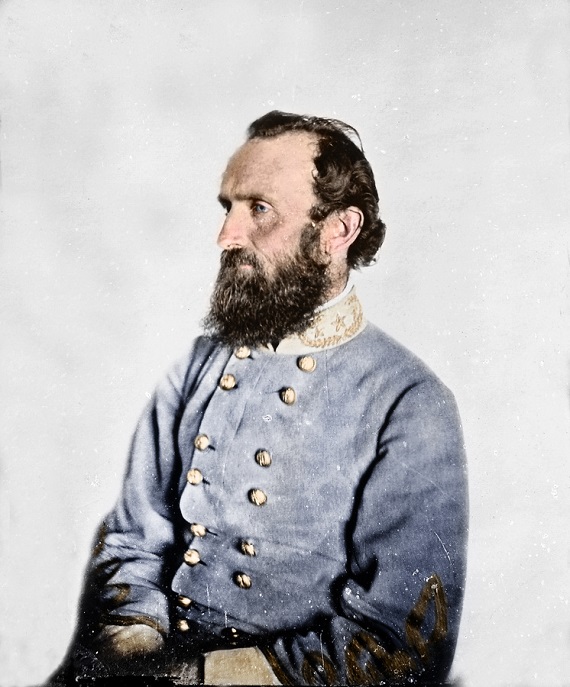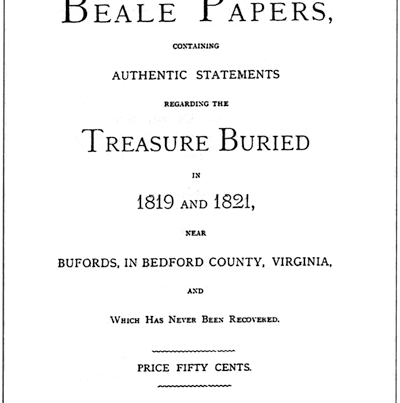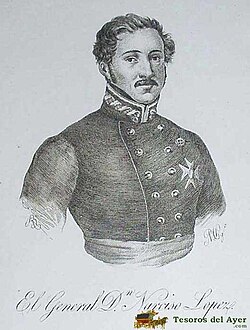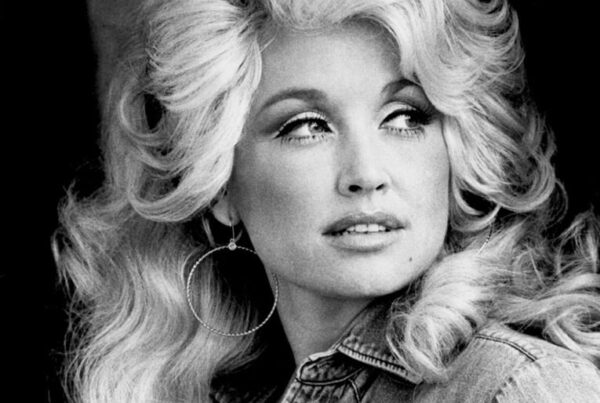Rebel Yell: The Violence, Passion, and Redemption of Stonewall Jackson (2014) by S.C. Gwynne.
A braver man God never made.
– Richmond Dispatch, 3-28-1862 (page 226)
Gwynne’s biography of Stonewall Jackson is simply one of the best biographies I have ever read. Many biographies plod along a “cradle-to-grave” timeline that starts out something like “our hero’s father started out as a child…” and relates those supposedly telling events of childhood that shaped the man, indulging in armchair psychoanalysis along the way. Some, in the absence of words recorded by principals, just whip up dialog out of thin air – and here I’m thinking of Michael Shaara in The Killer Angels, half of which consists of invented chatter.
Instead, Gwynne takes known dialog from the letters of principals, and he adapts the timeline to what the biography needs to emphasize. For example, the opening scene is a portrayal of what he later (page 336) calls “one of the most thrilling moments of the war” – when Jackson had catapulted to fame after routing three Union armies in the Shenandoah valley and had been summoned east to save Richmond, on June 19, 1862.
[W]ith less than 17,000 troops (and sometimes far less), Jackson had taken on and routed 52,000 troops […]. He had inflicted 4,600 casualties, seized 9,000 small arms and a vast trove of Union supplies, and had kept more than 40,000 Federal troops from joining McClelland in front of Richmond. In five battles and many smaller engagements from March 23 to June 9 [1862], he had marched his men 646 miles […] all at a cost of 2,750 men. In the late spring of that year he was very likely the most famous soldier in the world. (page 331)Gwynne paints the scene in the Charlottesville train station in the Blue Ridge mountains, where the liaison from the Confederate government, congressman Alexander Boteler has been sent to “await orders” – which turn out to be meeting Jackson, who is traveling by train in secret.
Gwynne has a gift for asking the common-sense questions, especially in battlefield situations, and – with possibly one exception that I’ll get to later – doesn’t worship any historical sacred cows. For example, Union general Ambrose Burnside is condemned by historians for ordering over a dozen frontal assaults at Fredericksburg (beginning 12-11-1862), but given the overwhelming Union superiority it should have worked, and Lee himself had no aversion to frontal assaults (e.g., Gaines’s Mill, Malvern Hill, Gettysburg). Also, Gwynne does not indulge in psychoanalysis, which might tempt a lesser biographer dealing with Jackson’s many personal oddities. What he does do is focus on what the man actually did, and gets out of the way of that dazzling story.
Looking back on four years of war, it’s easy to forget that the South should have been crushed after about 14 months, when McClellan had Richmond invested with over 100,000 men. It was at that moment, when his heavy siege guns were set to arrive outside Richmond and begin reducing its defenses, that Jackson appeared from the Shenandoah. However, during the Seven Days Battles (beginning 6-25-1862), it was more the legend of Jackson rather than the man himself that was effective. The entire Union command feared that he might slip behind their armies and menace Washington, or cut off their northern supply line on the Orange and Alexandria railroad. But Jackson especially seemed out of his element – in part because he would not allow himself sufficient sleep, and in part because his Shenandoah map maker Jedediah Hotchkiss (page 265) was not available, giving him trouble with the most basic topography of the swampy land east of Richmond, where towns had double names (e.g., Cold Harbor, Old Cold Harbor) and roads too (Quaker Road at Malvern Hill, which designated several roads). He seemed to follow Lee’s orders in a wooden, mechanical way, without his usual flair, probably because he had been given command of the largest part of Lee’s force and could not afford to be reckless. However, after Seven Days, Jackson returned to form, following Lee’s plan to secretly sweep north, getting behind the Federal right. The plan allowed him to move large armies at then unheard-of speeds: Dividing from Lee east of Richmond, Jackson’s army left camp at 3 a.m. on August 25, 1862, and stopped at sunset, having covered 26 miles (page 415). The next day, the army covered 52 miles in 32 hours (page 417) – and all told averaged three miles an hour for an entire army with all its artillery support and baggage. This rapid movement allowed him to indeed cut the Federals’ northern supply line and to dictate the ground that ultimately destroyed John Pope at Second Manassas (beginning 10-28-1862).
Jackson the man was every bit the wonder as Jackson the soldier. If you have time for only one chapter, and want a taste of Gwynne’s writing ability, you should read Chapter 33 “The Hilljack and the Society Boy,” which contrasts Jackson and McClellan in the West Point class of 1846, which produced more generals than any before or since – 22 (page 341). And note that the chapter is placed not in historical sequence, but after the principals have been introduced. Jackson was a “hilljack” and without real learning when he tested out dead last in the entry exam to this famous class. But by avoiding all social events and studying late into the night, he rose like “a meteor” to finish 17th in a class of 59 (page 346).
Jackson complained most of his life of a number of real ailments: Eye inflammations, sinus infections, chronic indigestion. He always sat bolt upright to aid digestion, and he was convinced that parts of his body were growing at a rate faster than the other parts. To alleviate this, he raised the arm that he thought was getting too much nutrient; he practiced “leaping” exercises on the parade grounds at the Virginia Military Institute; and he modified his diet to prefer stale bread and milk, or buttermilk and cornbread (my grandfather’s favorite, I have to say), little meat, and no alcohol. Strangely, after two months into the war, in June, 1861, all these ailments vanished (page 198). It is a credit to Gwynne that he never uses the word “hypochondria” – he just doesn’t know the reason for this and refuses to speculate.
Jackson was painfully shy, and not just at West Point, where he was in the company of more polished men. However, Gwynne points out that, especially due to the company of his first wife Ellie Junkin (who died in childbirth), the daughter of a college president, and the company of his second wife Anna Morrison, and the learning from a Grand Tour of Europe in the 1850s, Jackson, who liked Shakespeare and poetry, was actually better read than someone like Lee. In private company, especially that of his family, he was transformed into a man with a real love of life: He liked to speak baby talk to children in Spanish (which he had taught himself); he liked to spring out at his wife and give her a hug and kiss; his letters are filled with expressions of real longing for her. Yet he could be punctilious in the extreme, especially in matters touching on military duty, as witness his arrest of Richard Garnett after the Battle of Kernstown (4-23-1862). Garnett had ordered a retreat after his men had run out of ammunition – which had been made unavailable by Jackson himself – and when a bayonet charge would have been suicide (pages 258-60). Nevertheless, everyone, including Garnett, gave testament to his kindness (page 334). Yet this same kind man, who truly hated war and its horrors, wrote to his nephew in January, 1861, that he was quite ready to raise the black flag – to kill all prisoners – if that would shorten the war (page 19).
Central to his life was his unaffected devotion to an abiding, eternal God. Of him it can be truly said that he lived a life of prayer. He followed the injunction of 1 Thessalonians 5:16 to “pray without ceasing.” When asked what that scripture meant, Jackson replied
I have so fixed the habit in my own mind that I never raise a glass of water to my lips without lifting my heart to God in thanks and prayer for the water of life. Then, when we take our meals, […]. Whenever I drop a letter in the post-office […]. When I break the seal of a letter […]. When I go to my classroom and await the arrangement of the cadets in their places, that is my time to intercede with God for them. And so in every act of the day I have made the practice habitual. […] [T]he habit has become almost as fixed as to breathe. (page 147)
It was this continual state of prayer that gave him calm on the battlefield: The hour of his death he had placed in God’s hands long before.
One fault with Gwynne’s book is the obligatory tribute it gives to Lincoln (page 21). Gwynne, who was a career journalist at Time magazine, has got to win establishment brownie points with a twist on Lincoln that I’ve frankly never heard before: That Lincoln was a moderate on slavery where it existed, but a crusader against slavery in the new territories. In other words, by Gwynne’s scheme, you can have your cake and eat it too. But this won’t work. Lincoln’s opposition to slavery in the new territories was part of the Free Soil platform (which Gwynne does not even mention) to guarantee land to whites in exchange for votes, not for any moral idealism. Lincoln was a political hack of the first order. He became the abolitionist champion because he was cornered by politics: George McClellan was running as the moderate on slavery in 1864, and Lincoln had only one political base: The Radical Republicans and the abolitionists. His payoff to them for the electoral victory in 1864 was to wage total war for this new-found idealism. And so Lincoln, the man who never set foot in church who nonetheless knew how to ring the changes on Scripture, wrote a Second Inaugural Address that dressed up a political bill of sale as an avenging sermon.
It is interesting to consider what would have happened if McClellan had been given a few more weeks before the arrival of Jackson in the east in June, 1862, when McClellan was almost ready to pound Richmond into submission – as everyone expected – with his siege guns and his 100,000-man army. He was a man who wanted gradual emancipation, if at all; who included slaves in his respect for private property; he considered warfare against civilians to be immoral (page 385); he treated Lee’s wife respectfully even as he occupied her home, the Custis mansion, during part of the Peninsula Campaign (page 351); he forbade pillage by troops under his command in Virginia (page 396); in short, he was a gentleman in his self-restraint. In this event, very likely the South would have surrendered, McClellan would have become the “peace President,” and the issue of slavery would have been resolved without destroying over 600,000 lives and the Constitution.
The real possibility of a quick McClellan victory raises a question that should lay bare the soul of every Southerner: Which would you have chosen? A war with four years of bloodletting, concluding with the destruction of a civilization followed by a vengeful Reconstruction crippling generations to come, all made possible in great part by the genius of Jackson; or, on the other hand, a quick resolution given by McClellan, with peaceful emancipation, with the idea of secession preserved, all contingent upon a world where Jackson had never lived? The answer, that you already know, whispers the tragic sadness of every heart that has loved the South.







